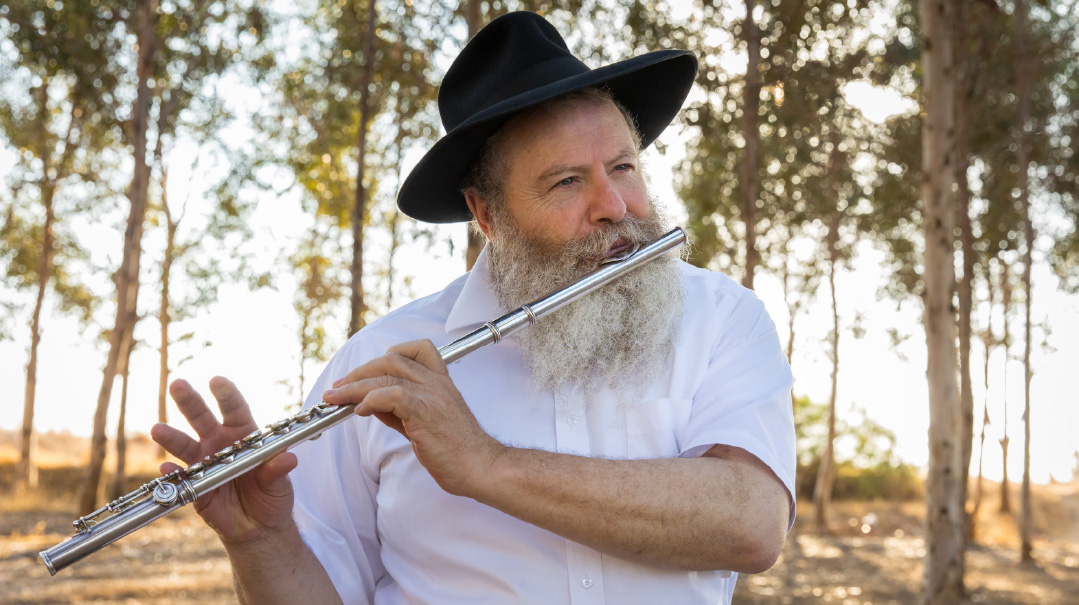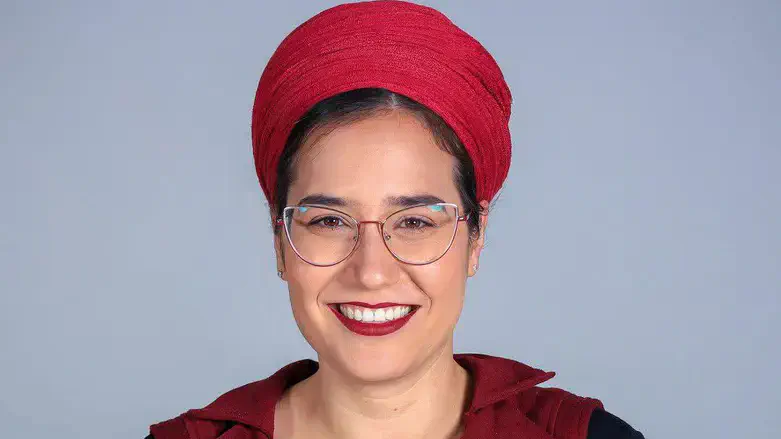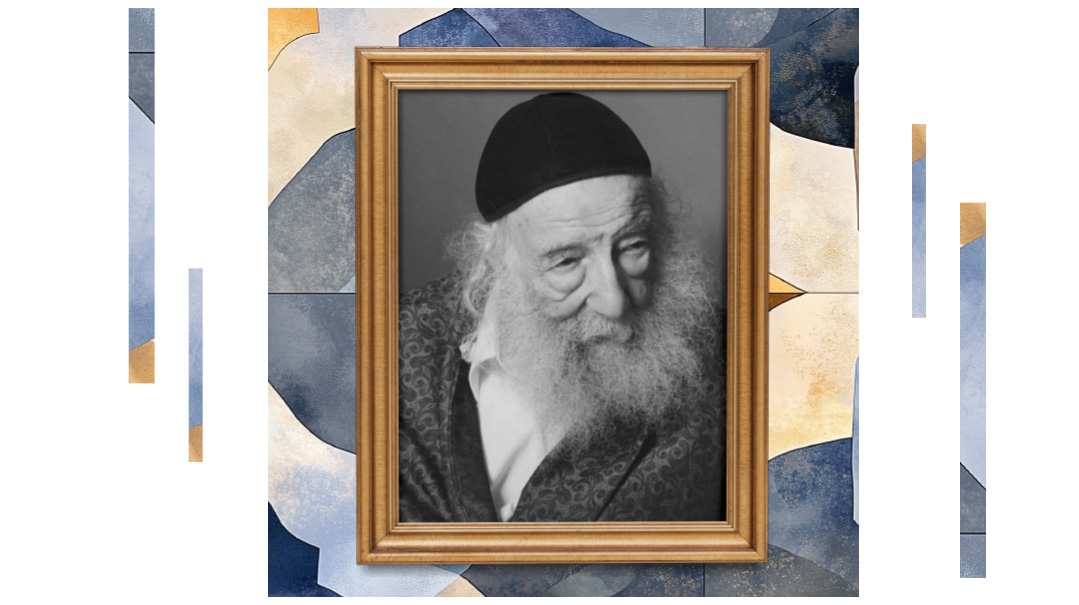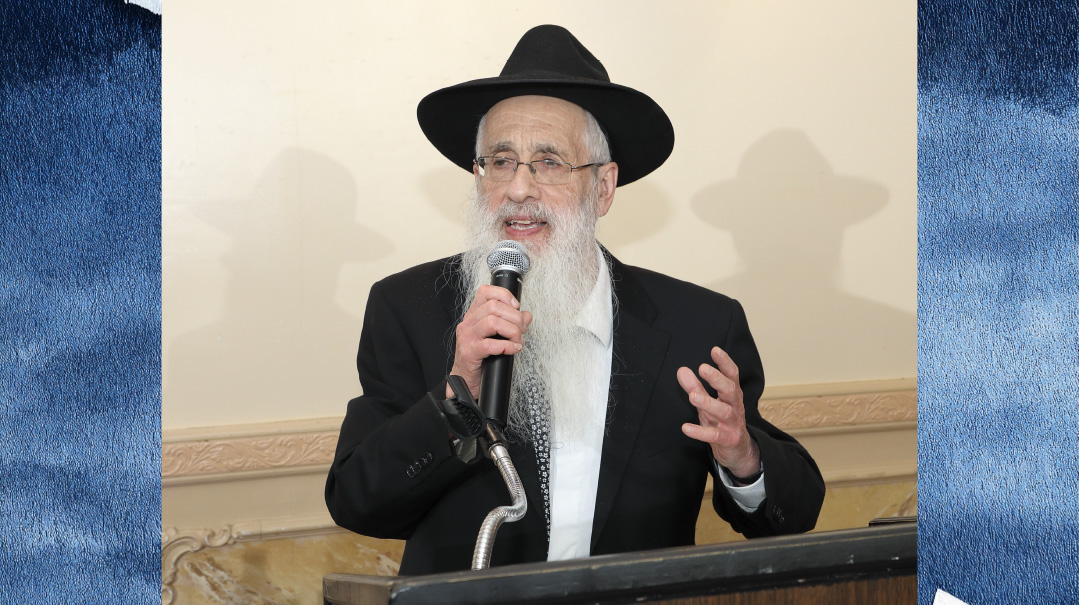Everyone’s Mashgiach
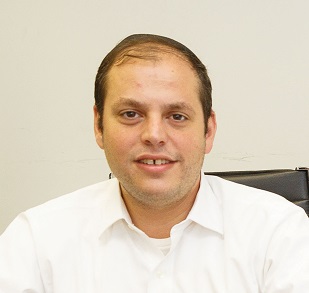
A remembrance on Rav Chaim Walkin’s first yahrtzeit
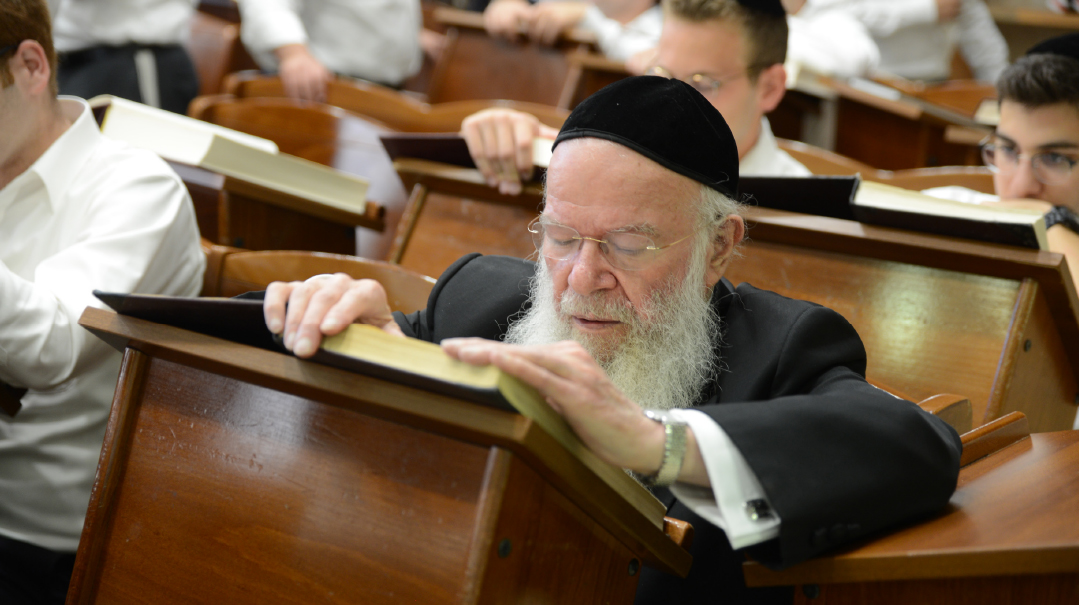
Rav Chaim Walkin’s feet were firmly planted on the ground, but his mind was busy with mussar — unless someone needed his attention, be it a longtime student or a child in shul. Born in Shanghai, raised in New York, he made his mark in Yerushalayim with thousands of talmidim. A remembrance on his first yahrtzeit.
R
av Chaim Walkin ztz”l, for more than 40 years the mashgiach at Yeshivas Ateres Yisrael in Yerushalayim, knew as well as anyone how much love is lacking in the world today. How much people need it. How they need a place that will accept them with without judgment, without criticism, without a sideways glance — a place where the mashgiach is not constantly watching over them.
I can say with near certainty that the Mashgiach would not have counted me among his five talmidim muvhakim. Or perhaps even among the top fifty.
He had hundreds of talmidim muvhakim. His students hold some of the most prominent positions in the Torah world today. Maybe one of them would have been a more appropriate choice to be writing this article. But he had such an ayin tovah, and he took such pleasure at anything that someone else produced.
Thousands who owe him their spiritual lives, even if those who do not serve as roshei yeshivah or meishivim or eighth-grade rebbis. He taught us that a person has to strive for excellence in everything he does, and to be a yerei Shamayim and oved Hashem while doing it.
There are many mashgichim for metzuyanim. But our Mashgiach, Rav Walkin, was the only one who was everyone’s mashgiach. Balabatim and avreichim, Israelis and Americans, young and old.
Each One and His Way
He perceived the role of Mashgiach as a traffic navigator. Sort of a moral Waze. To show each one his unique way to serve Hashem. To explain to each one who thinks that he strayed that he didn’t actually do so; the way that he is walking is the precise path for him.
“Avraham was singular,” he would say at every opportunity. “Today uniformity is demanded from everyone. Stay on the path, be like everyone else. If Avraham Avinu had thought that way, there would be no Jewish People. When he realized he could forge a new path for himself, that’s how he discovered Hashem. Each one of us is a small Avraham Avinu. If each of us doesn’t find his own way in the world, he’ll end up as the son of Terach, serving avodah zarah with vigor. Losing his world.”
Another diamond in his crown was his ability to see the good in others. A story from his final days captures this essence.
The mispallelim in the Noam Hashem shul he led were debating what to do about talking during davening. Some called for a firm hand, due to the severity of the offense. Others felt that such an approach would lead to offense and embarrassment.
I came to his house and reported the heated exchanges to him.
He smiled. The Mashgiach enjoyed hearing good stories, and he liked my descriptions.
And then he said, “We don’t tell people off.” He paused. “But speaking during davening is very severe. So try this idea. Buy a big bag of candies. The one who talks the most during davening should be appointed gabbai. Instruct him that anyone who talks will get a candy. He’ll get the point. You don’t need to say anything.”
Then he put down his teacup and said: “Shimon, which shul are you asking about? In our shul, baruch Hashem, no one talks. Is it a shul here in the neighborhood, or is this a general question?”
That moment I gleaned an understanding of the Mashgiach’s outlook on life. It wasn’t that he was judging them l’chaf zechus, or forgoing his own honor; he simply couldn’t see anything bad in another person. If someone transgressed an issur, such as speaking during davening — he simply didn’t see it.
In our shul, baruch Hashem, they don’t talk — so which shul are you talking about?
A Baby Born in China
Rav Chaim Walkin was born in Shanghai on 4 Tishrei 1945/5706; his bris was on Yom Kippur. The war was over, and the dreadful news of what had happened in Europe was filtering into China, to the exiles of Lithuania’s yeshivah world who had escaped.
Rav Chatzkel Levenstein stood in a corner, tears rolling down his cheeks as he pleaded with the Creator to grant his flock a year of life, blessing, and abundance. After a prolonged Yizkor, which most of the bochurim participated in, there was silence in the hall. The Walkin family, one of the most prominent in the Shanghai exile, was making a bris.
It was the simchah of the whole yeshivah. Every bochur felt this new baby belonged to him as well. The years in Shanghai had bound them all into one family.
“Vikarei shemo b’Yisrael,” called Rav Simcha Elberg, who later became one of the eminent rabbanim in America.
“Chaim,” replied the father, Rav Shmuel Dovid Walkin, a talmid of the Chofetz Chaim and a leader of the local community.
The baby was named for his uncle, Rav Chaim Walkin, who had served as the last rosh yeshivah of Volozhin. Rav Chaim Shmuelevitz had been consulted about the name, which was to kindle the hopes of the Jewish exiles in Shanghai for new lives, far from the land of their suffering.
“In time,” the Mashgiach later related, “I received a journal written by Rav Chaim Shmuelevitz. When I leafed through the pages, I saw a shmuess in which he wrote: ‘Motzaei Yom Kippur 5706, seudas bris for the baby with a great future, Chaim Walkin.’
From the moment of his birth, the Mashgiach symbolized a new start.
Special Warmth
When he was one, the Walkin family moved to America, settling in Brooklyn. Young Chaim Walkin would attend elementary school there, later spending a year at Yeshivas Rabbeinu Chaim Berlin under Rav Yitzchok Hutner, and then moving on to Ner Yisroel under Rav Yaakov Yitzchok Ruderman for a year. Then he went to Telshe Yeshivah in Cleveland, where he spent several formative years under Rav Chaim Stein, Rav Mordechai Gifter, and Rav Boruch Sorotzkin.
During that period, he came to Eretz Yisrael, to the Mir, where he learned under Rav Chaim Shmuelevitz. That was to have a profound effect on his outlook that he carried with him the rest of his life.
He returned to America and learned in Telshe for several more years. Then in 1967 he married the daughter of Reb Yosef Mattisyahu Engel, and the young couple soon moved to Eretz Yisrael. It was then that he embarked on his lifetime of teaching. His first position was Aish HaTorah in Yerushalayim. His skill and understanding in handling young talmidim new to Torah gradually gained attention.
In 1982, Rav Elazar Menachem Man Shach tapped him to help found Yeshivas Ohr Yisrael in Petach Tikvah, where he became the mashgiach. Word spread about the powerful shmuessen he delivered there, carrying on the legacy of Rav Chaim Shmuelevitz. Perhaps that is what led to his appointment as mashgiach of Yeshivas Ateres Yisrael, where he succeeded Rav Meir Chodosh, the father-in-law of the rosh yeshivah, Rav Baruch Mordechai Ezrachi.
Over the years, I got to know Rav Walkin as three different Mashgichim. Each period in my life had its own Mashgiach.
When I was in yeshivah, I got to know the Mashgiach of the yeshivah world. The shmuessen, shiurim, vaadim, the constant striving to make progress in avodas Hashem. And perhaps most uncharacteristic of the classic mashgiach profile, he had a personal concern for the bochurim, and a personal approach tailored to each one. There were some of whom he demanded scrupulous adherence to every detail of halachah. Others he encouraged to let go a little bit, when he saw that they were being affected by the mental pressure of it. He didn’t have a uniform way, a “one size fits all” approach.
At the levayah, I heard two anecdotes.
One was from a fellow member of our vaad: “The Mashgiach,” he related, “wasn’t able to come to my wedding. He had an unexpected reason. It happens. Six years after the wedding, I came to him with my son for his chalaka. I went in, and he stood up for me, as if he had been waiting only for me. ‘I’m so sorry,’ he apologized, ‘I wasn’t at your wedding. I couldn’t make it. Do me a mitzvah. When you have another simchah, call me. I owe it to you.’
“From that moment on, my life changed. Like, who am I, one bochur from thousands who had passed under his influence? I saw how important it was to him. I walked out of there standing tall. I can’t explain how much I owe him.”
Another story, related by Reb Yisrael Kellerman, deputy mayor of Jerusalem: “When I was an older bochur, I came to Yeshivas Ateres Yisrael, and I immediately was drawn close to him. Later, it emerged that everyone felt that he was the closest to him. But for me, coming from the yeshivos of Bnei Brak, that warmth was not taken for granted.
“I got married in Elul — against the rules of the yeshivah. To maintain continuity of learning, there was a rule that anyone who married in Elul would not have the bochurim at his wedding. I was disappointed, but I accepted it. The Mashgiach enforced this rule. It was important to him that the bochurim not leave the yeshivah in Elul. He saw how distraught I was, and to my surprise, without any fanfare, he came to my wedding and danced with me for a very long time.”
A Compliment for Tommy
I was zocheh to be a ben bayis at the Mashgiach’s home. As a very close friend of his sons, I saw another kind of Mashgiach, no less remarkable. These were family situations, in Israel and in America, in places far from the beis medrash and the sheltered streets of Bayit Vegan, where the “mashgiach” style of conduct was not appreciated. And specifically there, in those places, his true self shone.
His son, Reb Yaakov, who lives in Boro Park, has a black neighbor, Tommy, a nice guy.
Whenever we walked next to the Mashgiach in the street and we met Tommy, he would say to him: “How are you? You’ve got such a nice garden. There isn’t as nice a garden in the whole world.” Or he would say, “Tommy, you look so good today. You’re brightening up my day.”
“Thank you, Abba,” he would say. “G-d bless you.”
When Tommy heard that “Abba” had passed away, he burst out crying. When he calmed down, he sent a heartwarming description of the Mashgiach as the only person in his life who told him he looked good, that he was doing something good, that his garden was nice.
Chaviv adam shenivra b’tzelem. Every human being created in the image of Hashem felt his appreciation. Every single one. In every situation.
A Small Candy
The third Mashgiach that I merited to know was the last three years of his life, when he served as the rav of Beis Medrash Noam Hashem.
When my mother a”h passed away, we gathered in his house to open Noam Hashem. It was just after Yeshivas Ateres Yisrael had left Bayit Vegan, and for a time, the tefillos were held in the Mashgiach’s house. We asked him to lead our new shul and he agreed.
It wasn’t easy for him. The new shul required exhausting logistics. Three times every Shabbos, he needed to go out in his wheelchair, into the heat or the rain. Every movement was a great effort for him, but he never gave up. He came with mesirus nefesh.
And how much light he gave us! He changed people’s lives. We learned so much from him in those three years. At every discussion that arose, he had a solution that no one had thought of.
Times for davening, chinuch issues, mosdos, he always spoke in terms of “maybe” or “perhaps,” but he knew exactly how to get it all done without anyone feeling like he lost out.
On the day of his passing, I rifled through some photos.
In the shul, he was a rav and spiritual figure for the mispallelim, and a benevolent grandfather to the children. He fulfilled every role to the maximum. He cleared away his time to give another drashah, another shiur, more advice. He served as grandfather of the shul’s children with the same enthusiasm, infusing them with love of Torah and ta’am in tefillah.
There wasn’t a Shabbos when he didn’t bring with him a big bag of candies. There were children who would pass by him like a carousel. Another candy and then another. It was maddening. But each time, they got it as if it was the first time. He gave them a candy happily, and shook their hands with a bright smile.
On the last Simchas Torah, we gave out pekelech to the children, and wrote on them: “The sweet children of the Noam Hashem shul following the path of Moreinu the Mashgiach shlita: Rejoicing with Torah, loving those who learn it, acting in pleasant ways and respecting one another.”
I never saw him smiling with such happiness as he did when he saw those pekelach. It was as if we had managed to bundle all his sweetness into each one, giving the children what they needed to know and to live by.
(Originally featured in Mishpacha, Issue 984)
Oops! We could not locate your form.

